Toyota Highlander vs VW Tayron – erot ja hinnat vertailussa
Kuka vie voiton?
Kokonaisuudessaan VW Tayron on vain pieni etu ja nappaa näin DriveDuel Champion -tittelin.
Se vakuuttaa tasapainoisemmalla kokonaisuudellaan ja on käytännöllisempi kumppani arjessa.
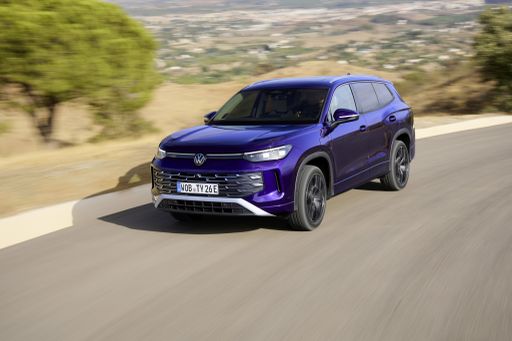 @ Volkswagen AG / VW Media
@ Volkswagen AG / VW Media
VW Tayron
Toyota Highlander
Toyota Highlander on tilava ja rauhallinen katumaasturi, joka tuntuu suunnitellulta arjen suurille ja pienille seikkailuille. Sisältä se tarjoaa hillittyä laadukkuutta ja käytännöllisiä ratkaisuja, ja ajettavuus on mukavan vakaata ilman turhaa sähellystä — täydellinen valinta perheelle, joka arvostaa luotettavuutta ja hillittyä tyyliä.
Tiedot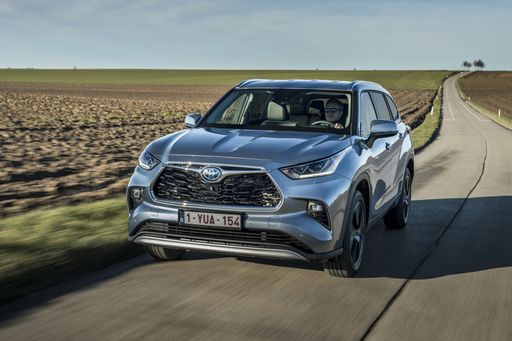 @ Toyota Motor Corporation
@ Toyota Motor Corporation
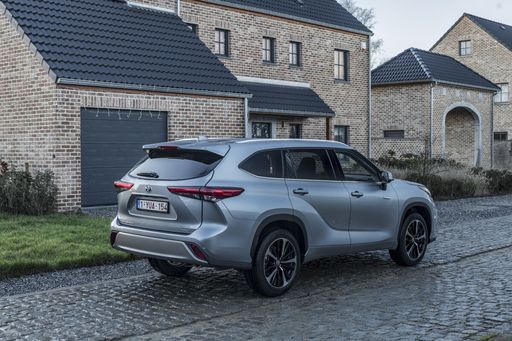 @ Toyota Motor Corporation
@ Toyota Motor Corporation
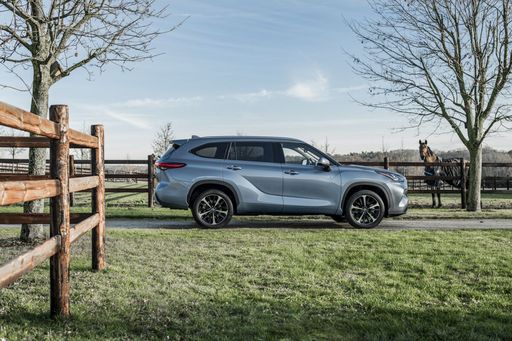 @ Toyota Motor Corporation
@ Toyota Motor Corporation
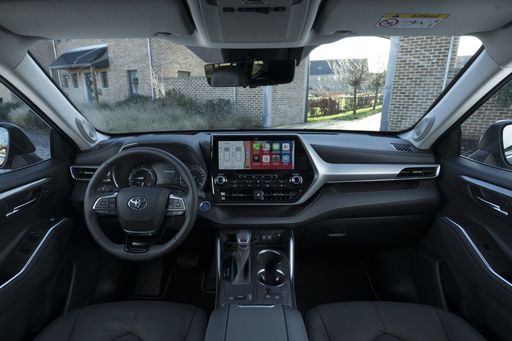 @ Toyota Motor Corporation
@ Toyota Motor Corporation
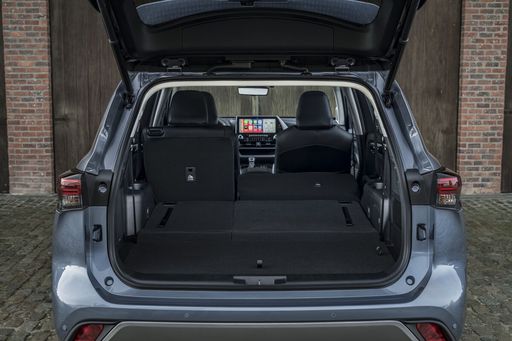 @ Toyota Motor Corporation
@ Toyota Motor Corporation
VW Tayron
Tayron on Volkswagenin hillityn tyylikäs katumaasturi, joka istuu arkeen kuin farkku farkun seuraksi — käytännöllinen, mukava ja helposti lähestyttävä. Ajamisen tunne on rauhallisen varma ja takapenkillä viihtyy porukka, joka arvostaa tilaa ilman turhaa prameilua.
Tiedot @ Volkswagen AG / VW Media
@ Volkswagen AG / VW Media
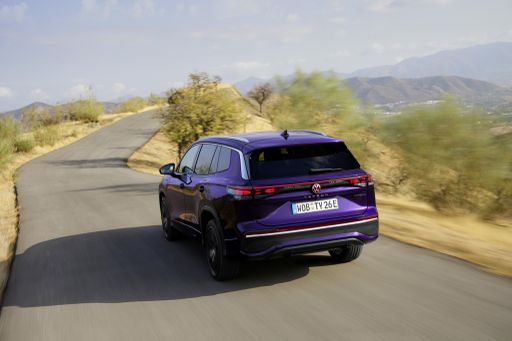 @ Volkswagen AG / VW Media
@ Volkswagen AG / VW Media
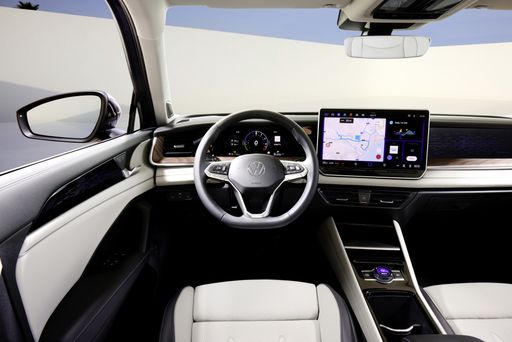 @ Volkswagen AG / VW Media
@ Volkswagen AG / VW Media
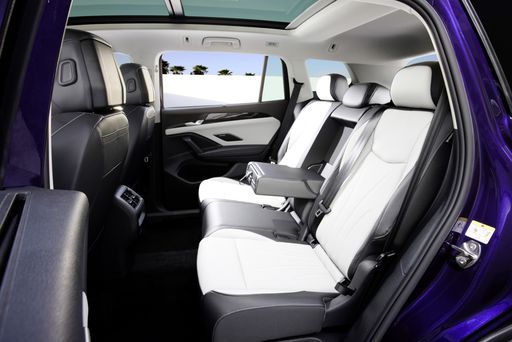 @ Volkswagen AG / VW Media
@ Volkswagen AG / VW Media
 @ Toyota Motor Corporation
@ Toyota Motor Corporation
|
 @ Volkswagen AG / VW Media
@ Volkswagen AG / VW Media
|
|
|
|
Kustannukset ja kulutus |
|
|---|---|
|
Hinta
-
|
Hinta
46200 - 62200 €
|
|
Kulutus L/100km
-
|
Kulutus L/100km
1.5 - 8.5 L
|
|
Kulutus kWh/100km
-
|
Kulutus kWh/100km
-
|
|
Sähköinen toimintasäde
-
|
Sähköinen toimintasäde
116 - 123 km
|
|
Akun kapasiteetti
-
|
Akun kapasiteetti
19.70 kWh
|
|
CO2
-
|
CO2
33 - 192 g/km
|
|
Polttoainesäiliön tilavuus
-
|
Polttoainesäiliön tilavuus
45 - 58 L
|
Mitat ja kori |
|
|---|---|
|
Kori
-
|
Kori
SUV
|
|
Istuimet
-
|
Istuimet
5
|
|
Ovet
-
|
Ovet
5
|
|
Omamassa
-
|
Omamassa
1682 - 1948 kg
|
|
Tavaratila
-
|
Tavaratila
705 - 885 L
|
|
Pituus
-
|
Pituus
4792 mm
|
|
Leveys
-
|
Leveys
1853 - 1866 mm
|
|
Korkeus
-
|
Korkeus
1666 - 1668 mm
|
|
Maksimi tavaratila
-
|
Maksimi tavaratila
1915 - 2090 L
|
|
Kantavuus
-
|
Kantavuus
489 - 566 kg
|
Moottori ja suorituskyky |
|
|---|---|
|
Moottorityyppi
-
|
Moottorityyppi
Bensiini MHEV, Diesel, Bensiini, Plug-in hybridi
|
|
Vaihteisto
-
|
Vaihteisto
Automaatti
|
|
Vaihteiston tyyppi
-
|
Vaihteiston tyyppi
Kaksoiskytkin automaatti
|
|
Vetotapa
-
|
Vetotapa
Etuveto, Neliveto
|
|
Teho hv
-
|
Teho hv
150 - 272 hv
|
|
Kiihtyvyys 0-100 km/h
-
|
Kiihtyvyys 0-100 km/h
6.1 - 9.7 s
|
|
Huippunopeus
-
|
Huippunopeus
204 - 240 km/h
|
|
Vääntömomentti
-
|
Vääntömomentti
250 - 400 Nm
|
|
Sylinterien lukumäärä
-
|
Sylinterien lukumäärä
4
|
|
Teho kW
-
|
Teho kW
110 - 200 kW
|
|
Iskutilavuus
-
|
Iskutilavuus
1498 - 1984 cm3
|
Yleiset |
|
|---|---|
|
Mallivuosi
-
|
Mallivuosi
2025
|
|
CO2-tehokkuusluokka
-
|
CO2-tehokkuusluokka
E, F, G, B
|
|
Merkki
-
|
Merkki
VW
|
Mitä vetotapavaihtoehtoja VW Tayron tarjoaa?
Saatavilla olevat vaihtoehdot: Etuveto tai Neliveto.
Näytetyt hinnat ja tiedot ovat arvioita, jotka perustuvat Saksan listahintoihin, ja voivat vaihdella maittain. Nämä tiedot eivät ole oikeudellisesti sitovia.
